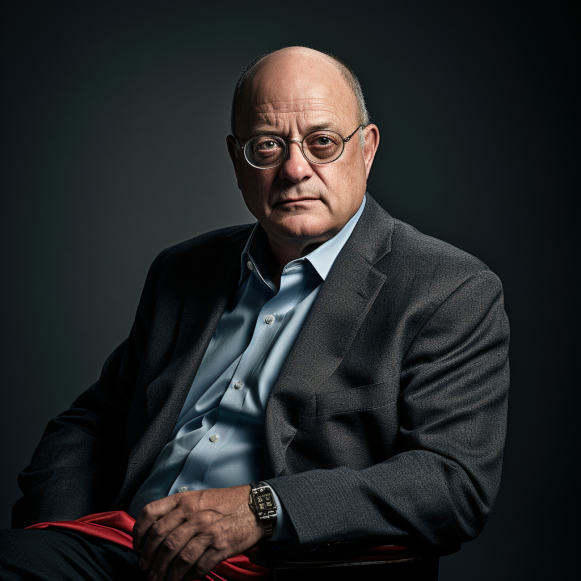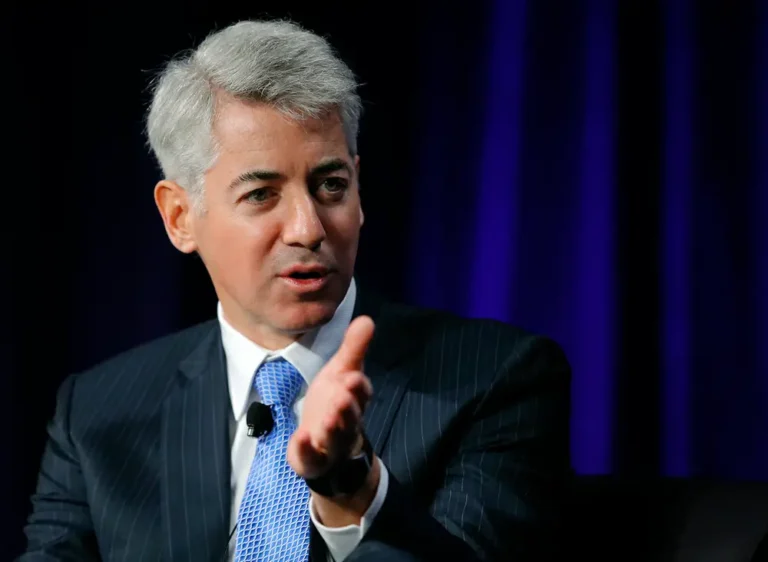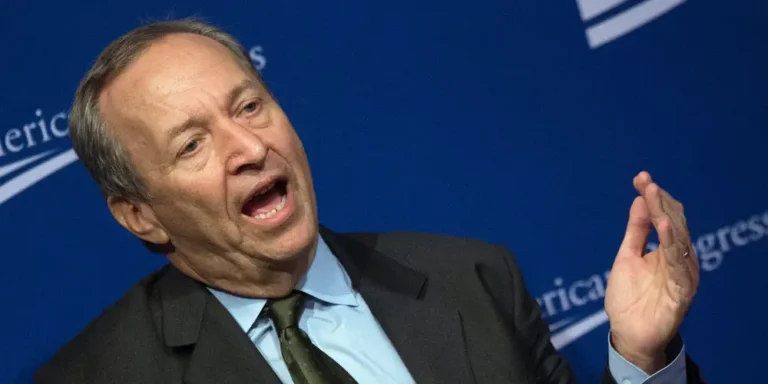Inside Point72’s boot camp for developing all-star portfolio managers, where Steve Cohen is known to grill up-and-comers who think they’re ready for the big time

- Point72’s LaunchPoint is the hedge fund’s incubator for top analysts ramping up to run money.
- The program provides a pipeline of new long/short portfolio managers for billionaire Steve Cohen’s fund.
- Point72’s CIO Harry Schwefel and Jon Weiner, head of LaunchPoint, explain how it works.
Once a year, billionaire Steve Cohen, one of the world’s most successful investors, grills a group of senior analysts hoping to join his $30.6 billion hedge fund, Point72.
The aspiring portfolio managers outline their most important goals and ambitions, and Cohen weighs in on whether or not they will be realized. The pitch session is intended to push them out of their comfort zone, according to Harry Schwefel, co-chief investment officer at Point72.
They inquire, “How are you going to get there?” “What are the foundational elements?” Schwefel explained. “It creates a great forum for Steve to dig into those building blocks to give his own view on things he’s seen work and things that haven’t worked.”
The exercise is part of LaunchPoint, Point72’s program for emerging long/short equity investors. It hires internal and external senior analysts who want to advance and run their own book.
Cohen will be able to share his wisdom and draw on his nearly 40 years of experience. After his previous firm, SAC Capital, pleaded guilty to securities fraud related to allegations of systemic insider trading, the billionaire established Point72 as a family office in 2014.
Point72 is a pioneer in investor talent development; the multi-manager has been running LaunchPoint, formerly known as Nines, since 2012. It also operates the Point72 Academy, a 10-month boot camp for recent college graduates interested in becoming investment analysts.
LaunchPoint is an incubator, a training ground for promising analysts to build a team and test their strategies with the help of Jon Weiner, the head of LaunchPoint and a longtime healthcare PM, and his team. They stay in the program for the first year because they are managing real client money. Point72 has refused to reveal how much money these PMs are seeded with.
In times like these, when the world’s largest hedge fund managers are deploying more money and perks to hire top traders, having a pipeline of new managers comes in handy. Finding long/short talent—investors who own some stocks in the hope of rising prices and others in the hope of falling prices—is becoming increasingly difficult.
“In my day to day, a good long/short manager is an endangered species,” said John Pierson, president of portfolio manager search firm P2 Investments. “Not that they’re going away, but in order to survive in a market-neutral mode, you have to learn to time the market—to tilt—which is a very difficult skill to master.” And if you’re good, they’ll do everything in their power to get you on their side.”
Point72 is involved in the current hedge fund hiring spree, just as Cohen has used his billions to bolster the roster of his New York Mets.
“We believe it is critical to be extremely active in the external talent market, but also to not leave things to chance, not to the ebbing and flowing of supply and demand and cyclicality, and instead develop it ourselves,” Schwefel said.
If the search for hedge fund talent is akin to bidding wars for star athletes, then Point72’s LaunchPoint is its feeder team.
Cohen stated at a press conference after purchasing the New York Mets in 2020, “We’re going to build a process that produces great teams year in and year out.” You create champions. You do not purchase them.”
Weiner stated: “We’re taking the same approach here, which is we’re not just buying PMs, we’re building them internally.”
They’ve also benefited from setting up investors in-house. Since LaunchPoint’s inception in 2012, more than 70 long/short managers have launched, with 75% still at Point72. They account for half of the firm’s 100 long/short managers. Globally, the company employs approximately 175 PMs.
Inside the Point72 incubator that creates the next long/short stars
Becoming a PM at a multi-manager company like Point72 can be intimidating: you’re given significant autonomy to run your team and make investment decisions. There are frequently specific risk parameters and a set amount their strategy can lose before being axed.
LaunchPoint was designed for Point72 with the understanding that learning how to be a PM can take two to three years.
“Sometimes the mistakes happen before they’ve even launched capital because of how Jon’s team runs their process,” Schwefel explained. “Sometimes it happens after they’ve launched, but we’re not subjecting them to binary outcomes with drawdowns in those early years because they’re figuring it out.”
Point72 assists project managers with startup costs and infrastructure builds, as well as locating appropriate research tools and analyst talent. Weiner and his team, which includes Nick Shivers and Ariel Herman, assist in the development of models and data, “anything that basically gives you a nudge, helps you make decisions.”
“We saw that preparation really influenced the long-term success of new PMs,” Weiner stated.
The program currently has 21 candidates, but this number fluctuates as people join and leave. Candidates are typically divided into two groups: Point72 senior analysts who are ready to take the plunge and senior analysts from single-manager hedge funds or their competitors who have passed the firm’s rigorous hiring process.
Candidates present detailed business plans and spend months refining their investing strategy with a paper book that stimulates their portfolio without putting any money at risk.
There is no set time frame for when they will go live; Weiner said it could be anywhere between six and fifteen months. They begin once PMs have established their team, infrastructure, and other necessary tools and have demonstrated signs of success.
“We don’t just hand new PMs the manual and say, ‘This is how to be a PM.'” It’s highly personalized. “We’re underwriting their business and want to help it grow,” Weiner explained.
Griffin Newman, who joined Point72 from Brigade Capital Management in 2015 as an analyst, knew he wanted to advance to the position of manager and expressed that desire during the hiring process.
After four years of working under another PM, he felt he was ready. Before joining LaunchPoint, he worked on his business plan for about eight months, getting feedback from his colleagues along the way.
“Places will use the carrot of big dollars that you can manage as a way to get it in there, which I think is just very risky,” Newman said of other multi-managers. “I think that the benefit here as you go and do it on a paper book with people monitoring and your dollars scale up in a measured way, it just really ensures your probability of success instead of being thrown totally into the deep end.”
Newman, who started the program in 2019, took about a year to get his book up and running, which meant he did so during the pandemic. His primary interests are airplanes and aviation, as well as the industries that support them, such as industrials, consumers, and technology.
“The scary thing is you’re now in charge, and so you’re going into a new role where you’re managing money, and you have a team of analysts looking up to you to be the point person, making your own decisions when you haven’t done it before,” Newman stated. “And I got to try that into a pandemic, a travel aviation person.”
He was fortunate to be able to pick up the phone and seek advice from Weiner and other PMs. He claims he still hears Weiner in his head “every single day” about the lessons he learned on the show.
“They’re phenomenal at finding your weaknesses or areas that you could be adjusting,” he stated.
How experienced managers open up to assist
Weiner started at SAC Advisors on day one. He worked as a healthcare PM for over 25 years and mentored several analysts who went on to run their own funds.
According to Bloomberg, he decided to hand over his team to one of those analysts, Ryan Wilder, who recently left the firm to launch his own healthcare fund, in 2019.
“It was my time to move on and do something else,” Weiner stated. “And this was just a great next step for me where I could still be part of a firm I grew up in and give back and help the next generation of talent.”
Weiner took over in 2020 and renamed the program LaunchPoint from Nines — a 10 would mean a person is completely prepared to be a PM — to better reflect what it did.
Weiner has made mentorship core to what he does, from setting up coffees with PMs and candidates in the same sectors to inviting managers to host fireside chats where they talk about their struggles when starting out, including the annual goal pitching session with Cohen—which is typically followed by a dinner with him.
Team management is one such common issue. Weiner and his team focus on communication and encourage conversations with PMs who had early problems with their team.
“A lot of the PMs go to a place of vulnerability where they really share some of the real challenges that they had,” Weiner stated. “The hope is really that our new PMs can learn from them, and hopefully avoid them, but if they encounter them, they realize, ‘hey, this is not just unique to me.'”






